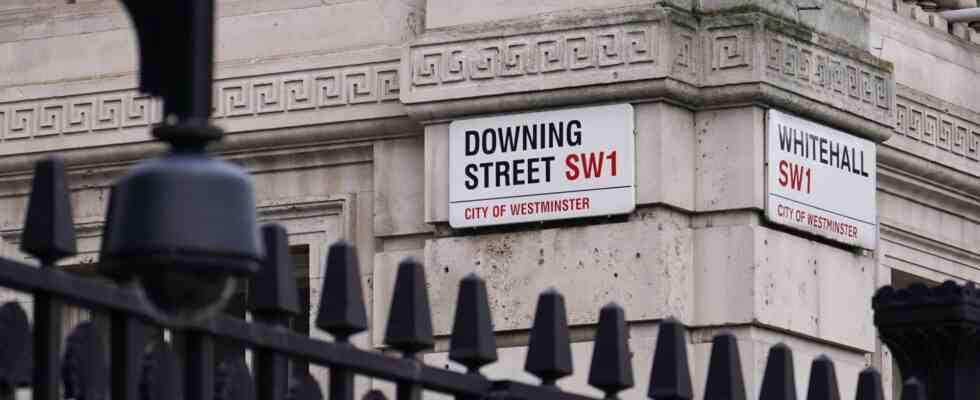Status: 09/28/2022 3:09 p.m
Great Britain’s conservative government wants to launch an aid package during the crisis that distributes funds according to the watering can principle. Much of this benefits the wealthiest. Why?
“Where is the Secretary of the Treasury?” asked Liberal Democrat leader Ed Davey in an interview with the newspaper this morning BBC. Many people are unsure how to proceed, said Davey, many demanded answers. After the International Monetary Fund criticized the Liz Truss government’s tax policy, the pressure on Finance Minister Kwasi Kwarteng increased.
Are the Tories stuck in a maze?
Opposition politicians, but also financial market experts fear that the members of the government have lost their way in their own dream world of economic policy – and can no longer find their way out of the labyrinth. “I’m afraid the government hasn’t understood or the government doesn’t care. They have put forward an ideological agenda and not a plan,” added Davey of the Liberal Democrats. His criticism relates to the massive tax cuts that Kwarteng presented on Friday – actually announced as the new government’s supplementary budget under the heading “mini-budget”.
But after the presentation of massive cuts in income tax, especially for the rich, a reduction in corporate tax and a reduction in social security contributions, numerous commentators noted that “mini” didn’t really fit here. The public debt will rise massively, the tax cuts are worth £45 billion, and there will be relief for citizens on the energy prices that the government has to finance. The price cap that is to be introduced will cost around £60 billion for six months. Taken together, that looks more like a maxi budget needed to fund it.
The old idea of low taxes
Prime Minister Truss and Minister Kwarteng argue that they want to boost the economy with the tax cuts, that more growth will then generate higher income and, above all, that the UK actually has a low level of debt. That doesn’t convince the International Monetary Fund (IMF). His experts warn against new borrowing. There is also a lack of belief on the financial markets that the plans will work. That’s why the pound has plummeted over the past few days. The leader of the main opposition party, Labour, Keir Starmer, said “the IMF statement is very serious and it shows what a mess the government has wreaked on the economy and it is homemade”.
Truss sees himself in the tradition of a typical financial and tax policy of the Conservative Party: taxes down. She likes to suggest parallels with former Prime Minister Margaret Thatcher. With one difference: Thatcher tried to keep the national debt low; Truss defies this, more akin to Ronald Reagan, the former US President who financed low taxes with high debt – without the dollar plummeting. But Great Britain is not comparable to the United States, as the commentators of the “Financial Times” analyze today. The US is much larger, more economically important, the dollar has always been a reserve currency that is much less vulnerable.
Government immune to criticism – BoE in wait
The IMF’s criticism does not go down well with politicians in the Conservative Party. Lord David Frost, former Secretary of State and responsible for Brexit, criticized in the “Daily Telegraph” that the IMF had always defended conventional economic policies in the past. And that has produced weak economic growth and low productivity for years. “The only way forward for Britain is lower taxes, spending restraint and economic reform,” said Lord Frost. But there is a problem with spending discipline and reforms. Kwarteng announced that he would present plans in November on how he intends to reduce government spending. The Labor Party, for example, criticizes that educational reforms are overdue to boost growth.
With debt mounting and sterling falling, the Bank of England has indicated it will not hesitate to take further action if it is needed. What is meant is a possible further interest rate hike. This would particularly affect those who have financed their real estate or are about to buy a house or apartment. Another reason why experts warn that the policies of the Truss government are likely to exacerbate social injustice. It’s an absurd situation: tax cuts were supposed to give relief to people in the UK, but now these policies threaten to fuel inflation further. Which effect will predominate is open – a big experiment.

